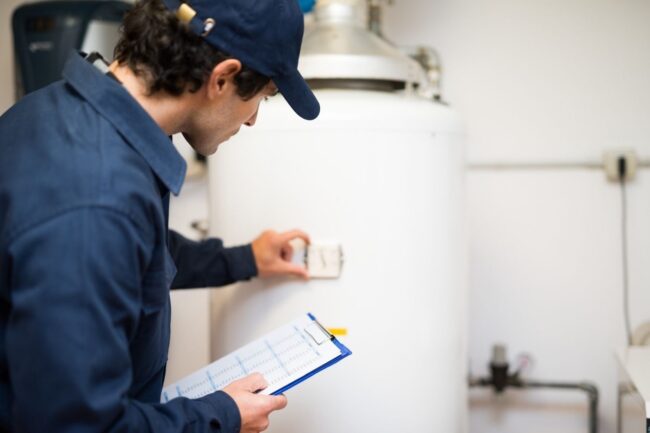The Unforeseen Overheating Dilemma
As the summer season rolls around, bringing sunshine and warmth, it’s easy to assume that your water heater is free from troubles. However, the truth is that the rising temperatures can introduce some unique challenges to your water heater system. We’ll delve into less-known problems that your water heater might face during the summer and explore ways to effectively handle them. There are many types of water heaters explained to choose from and we will help you choose one of them so you don’t need to worry about any repairs in the future.
You might be surprised to find that during the summer, your water heater takes longer to deliver hot water to your faucets and showers. This seemingly uncommon issue can be attributed to the elevated temperature of the incoming water supply. Warmer summer weather means that the cold water entering your water heater is closer to the desired hot water temperature, causing your water heater to work less and consequently extend the heating process.
To address this unexpected situation, consider making a minor adjustment to the temperature setting on your water heater. This can help strike a balance between maintaining a comfortable hot water temperature and preventing the unit from overworking.
Summer’s scorching heat can unexpectedly lead to your water heater overheating. This scenario can bring about pressure buildup, valve malfunctions, and, in severe cases, potential damage to the unit.

To steer clear of overheating complications, ensure that your water heater is situated in a well-ventilated area. Sufficient airflow can assist in dissipating excessive heat, maintaining a safe operational temperature. You may also consider the installation of a thermal expansion tank, which can relieve pressure and safeguard your water heater from the risk of overheating.
In the summer, the stark temperature contrast between the inside and outside of your home can result in unexpected condensation forming on your water heater. This excess moisture can ultimately lead to rust and corrosion, compromising the unit’s longevity and reliability.
To tackle condensation issues, contemplate the installation of a drip pan or insulation around your water heater. A drip pan can effectively capture surplus moisture, preventing it from coming into contact with the unit’s surface. Meanwhile, insulation can help maintain stable temperatures, reducing the chances of condensation buildup.
While sediment buildup is a perennial issue, it tends to become more pronounced in the summer due to increased water usage. Sediment consists of minerals and debris that settle at the tank’s bottom, hampering efficiency and posing a risk of damage.
To combat sediment accumulation, consider establishing a regular maintenance schedule with a professional plumber. Their expertise can prove invaluable in flushing the tank and eliminating accumulated sediment, ensuring your water heater performs efficiently during the summer season and well beyond.
In conclusion, while summer is synonymous with warmth and relaxation, it doesn’t exempt your water heater from occasional unexpected issues. Unusual delays in hot water delivery, overheating concerns, condensation complications, and sediment buildup are challenges that might catch you off guard. By taking proactive measures and adhering to a consistent maintenance regimen, you can ensure that your water heater continues to deliver dependable hot water, even amidst the summer heat.
